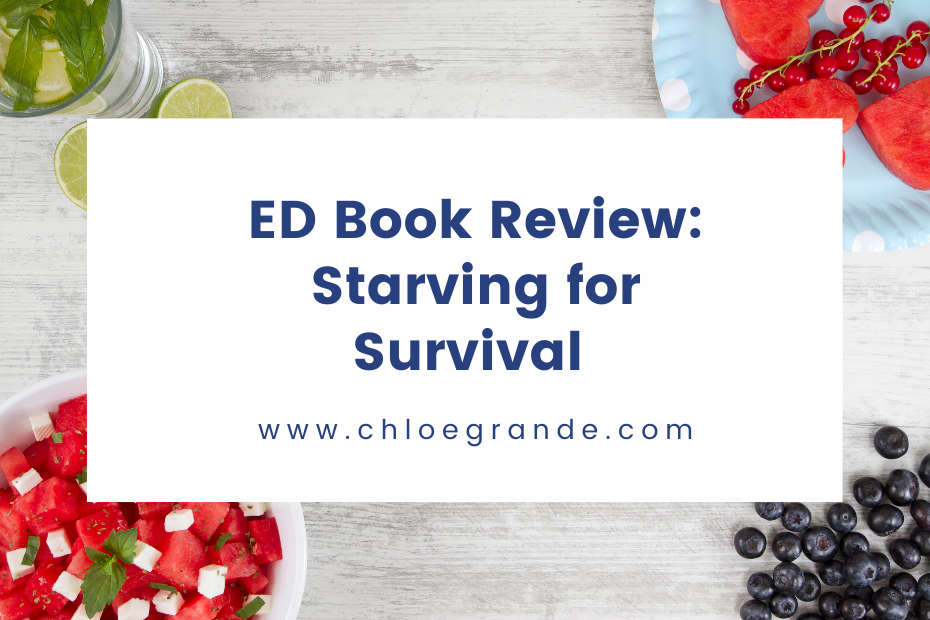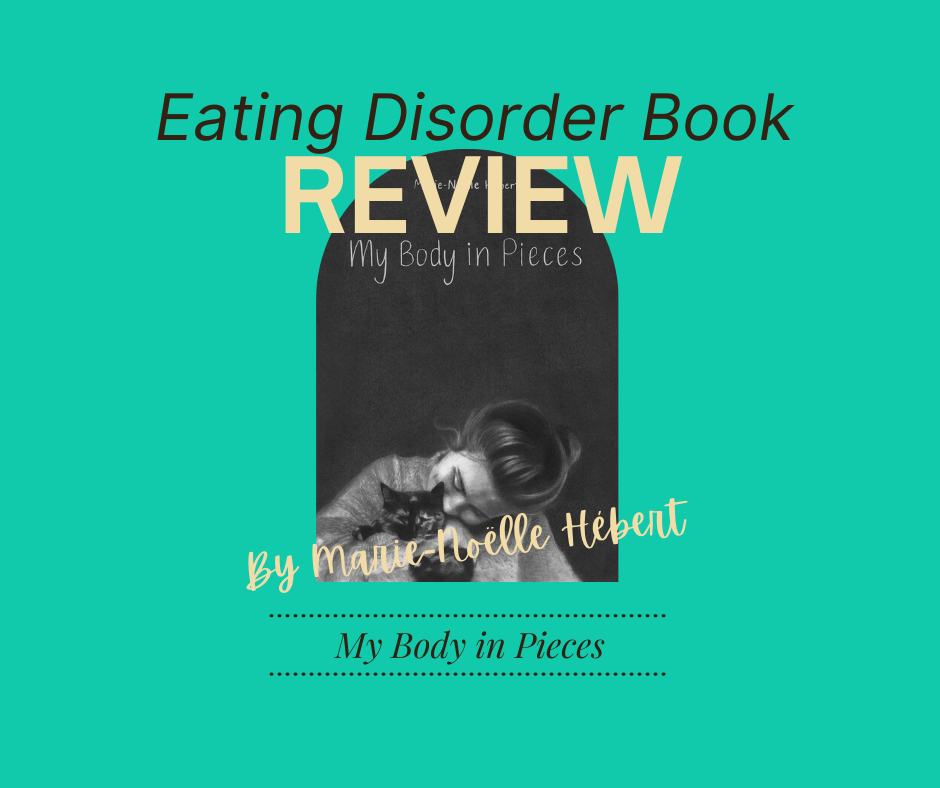I’ll admit I was hesitant to read Shell, a memoir by Michelle Stewart chronicling the last year of her life after a lifelong struggle with anorexia and bulimia.
I thought the book’s content would be triggering for my own eating disorder, plus it would be depressing to read about Michelle’s eventual death by organ failure. What I didn’t expect was a poignant, matter-of-fact account that beautifully weaves together blog posts with poetry.
Yes, the memoir was heart-wrenching and difficult to read at times, but discomfort is necessary to understand the trajectory of a fatal eating disorder.
In-between frequent medical and family visits, Michelle confronts the reality of dying in a self-reflective, self-deprecating manner. She shares what it’s like to have old friends reach out, to prepare for her own funeral, to feel guilty about what her family is going through, to barely have the energy to leave her house.
Above all, Michelle destroys the stereotypes of eating disorders only affecting young, teenage girls who strive to be thin. An accomplished and intelligent woman, Michelle has kept her illness a secret and led a seemingly successful life, complete with an impressive communications career and loving husband.
Like me, you’ll have to take the plunge past any hesitancies to learn her full story.
Top 5 takeaways after reading Shell by Michelle Stewart
1. The impact of trauma on eating disorders can’t be stressed enough.
After being sexually assaulted at the young age of 15, this event triggers the development of Michelle’s disordered eating. Unfortunately, traumatic experiences such as emotional, physical or sexual abuse are all too common among individuals with eating disorders.
I was horrified to read that one of Michelle’s healthcare providers suggested that getting a boyfriend and having sex might help her recover from her eating disorder. Pardon me?!?
Trauma-informed care is crucial when treating ED patients. I couldn’t help but wonder what would have happened if her trauma had been properly addressed by healthcare providers, instead of trivialized.
Learn more: The Relationship Between Trauma and Eating Disorders
2. Early intervention can be life-saving when it comes to eating disorder recovery
The importance of early intervention is a message that’s reinforced consistently throughout the book. Michelle writes: “I believe so passionately that to beat this disorder, the right kinds of tailored interventions have to happen early, and be sustained for as long as takes.”
As we see — even an end-stage renal disease diagnosis doesn’t stop her from weighing herself four times a day — the eating disorder is all-consuming. When invited to do a TV interview, her immediate fear is she won’t look sick enough. There’s no end to the disparaging thoughts that plague Michelle’s mind. She compares the illness to other addictive behaviours, explaining that “the more entrenched it is, the harder it is to prevail against it.”
When she first showed signs of her eating disorder over 30 years ago, access to mental health care, and especially eating disorder treatment, was limited and hard to come by. Her less-than-helpful encounters with healthcare professionals made me understand the barriers she faced accessing support.
Learn more: Why Early Intervention for Eating Disorders is Essential

3. Teaching children about obesity isn’t the answer
As a self-described “pudgy kid,” Michelle recounts the horrors of being weighed in front of her peers. This is a story I’ve heard so many times before from eating disorder survivors. For example, in Jason Wood’s book Starving for Survival, he recalls being called “Fatty” and the extreme toll that childhood bullying took on his self-esteem and his development of orthorexia.
Michelle advises parents to address their own food and body images issues before bringing up these issues with their children. Again and again, we see anti-obesity campaigns being promoted as the ticket to good health, when in reality, this fear-mongering only perpetuates diet culture and fat-shaming, causing more harm than good.
Michelle sums it up perfectly: “So, back off, fat police — and why not contemplate the power of self-respect?”
Learn more: Does Body-Shaming Lead to the Development of Eating Disorders?

4. Individuals with eating disorders deserve more dignity and respect
As Dr. Blake Woodside points out in the book’s foreword, the mortality from anorexia is in the same range as that for prostate cancer. Yet individuals with anorexia are often blamed with causing their illness — something we don’t see with prostate cancer patients, which are primarily middle-aged men.
This comparison isn’t meant to downplay the seriousness of other illnesses, rather it’s to illustrate the shame and judgement those with eating disorders are up against.
A lack of understanding from healthcare providers about the seriousness of these illnesses only magnified the problem. Case in point: In her early 20s, a doctor suggested Michelle have a baby to help overcome her eating disorder because it would make her “less selfish.” Would we ever suggest starting a family to someone else suffering from a serious, chronic illness?
Learn more: Dignity in Mental Health Care
5. You can’t scare an eating disorder out of someone
Had this been true, Michelle would still be alive today. Individuals with eating disorders are well aware of the consequences their illness carries. Michelle notes that all the risks weren’t enough to compel her to change her behaviour. At the same time, she reminds readers that you can’t force someone to be well.
That statement resonated deeply with me. For ten years, I was in a state of partial recovery. It wasn’t until the pandemic when I relapsed with anorexia and reflected deeply on the direction of my life that things began to change. Did I want to keep cycling through recovery and relapse? Or was there a deeper motivation to get better?
Learn more: What Not to Say When Someone Reveals They Have an Eating Disorder
I thought I had a good understanding about eating disorders, but after reading Shell, I realized there was much more to learn, especially with people who develop chronic, lifelong eating disorders.
This book will fundamentally change the way you look at eating disorders and end-of-life issues. We see the ways our healthcare system, societal pressures and countless external factors, like a drive for perfectionism and validation, hurt people.
Michelle writes that she started her blog as a form of release, as a way to control the narrative over the remainder of her life. She doesn’t want to be remembered as a poster child for anorexia and bulimia.
And she won’t be remembered that way. In Shell, I saw a woman who deserves the utmost dignity and respect for her fight against a raging illness.
Have you read any good books about eating disorders lately? Had you heard about this one? Let me know in the comments!
I first heard about Shell from Honouring the Journey, an event held by the National Initiative for Eating Disorders (NIED). NIED provides access to educational, informational and other recovery-oriented resources related to the prevention and treatment of Eating Disorders in Canada. Visit their website for more information: www.nied.ca.




Very compassionate and eye-opening review, Chloë !
Excellent links, as usual <3
Another strong bias in healthcare is that any woman with any heath related issue is at high risk of being dismissed. If she identifies as BIPOC or Nonbinary, then the prejudice increases.
That’s a great point! Being a woman, especially if she’s BIPOC or SLGBTQ+, is definitely a contributing factor to facing more barriers with eating disorder treatment.